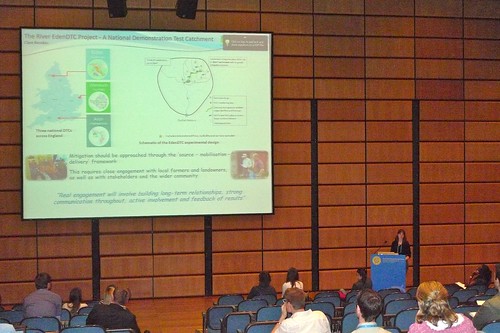My team and I are just back from an informative few days presenting and discussing at the European Geosciences Uniion meeting in Vienna. We mostly took part in a session that explored the challenges and solutions to catchment science problems, working across the boundaries of biophysical science and softer stakeholder interactions. It is my firm believe that the real solutions to diffuse pollution will ultimately be delivered through catchment stakeholders, but I was intrigued as to why so much of this high profile meeting (our session excepted) placed so much emphasis on finessing minute details of biophysical science or model building. Of course I too am a scientist, but it is increasingly obvious that my science will have little impact unless i work with those who know and manage the catchments. Step by step.....
Friday, 27 April 2012
Friday, 13 April 2012
Prof Phil Haygarth on Radio 4's Farming Today
Yesterday I was interviewed at rather short notice via an ISDN line at Lancaster University by Caz Graham at the Farming today team. The subject was farm pollution following the dry weather; it went reasonably well (you can go to the Radio 4 web and listen yourself http://www.bbc.co.uk/programmes/b01dghb3#synopsis) but I was a little perturbed by Caz's edit about 'the sea'. Most of the effects that I was referring to were actually associated with fresh and possibly estuarine waters, they are not commonly sea issues. Nonetheless, good to get the message out there...
Subscribe to:
Comments (Atom)

